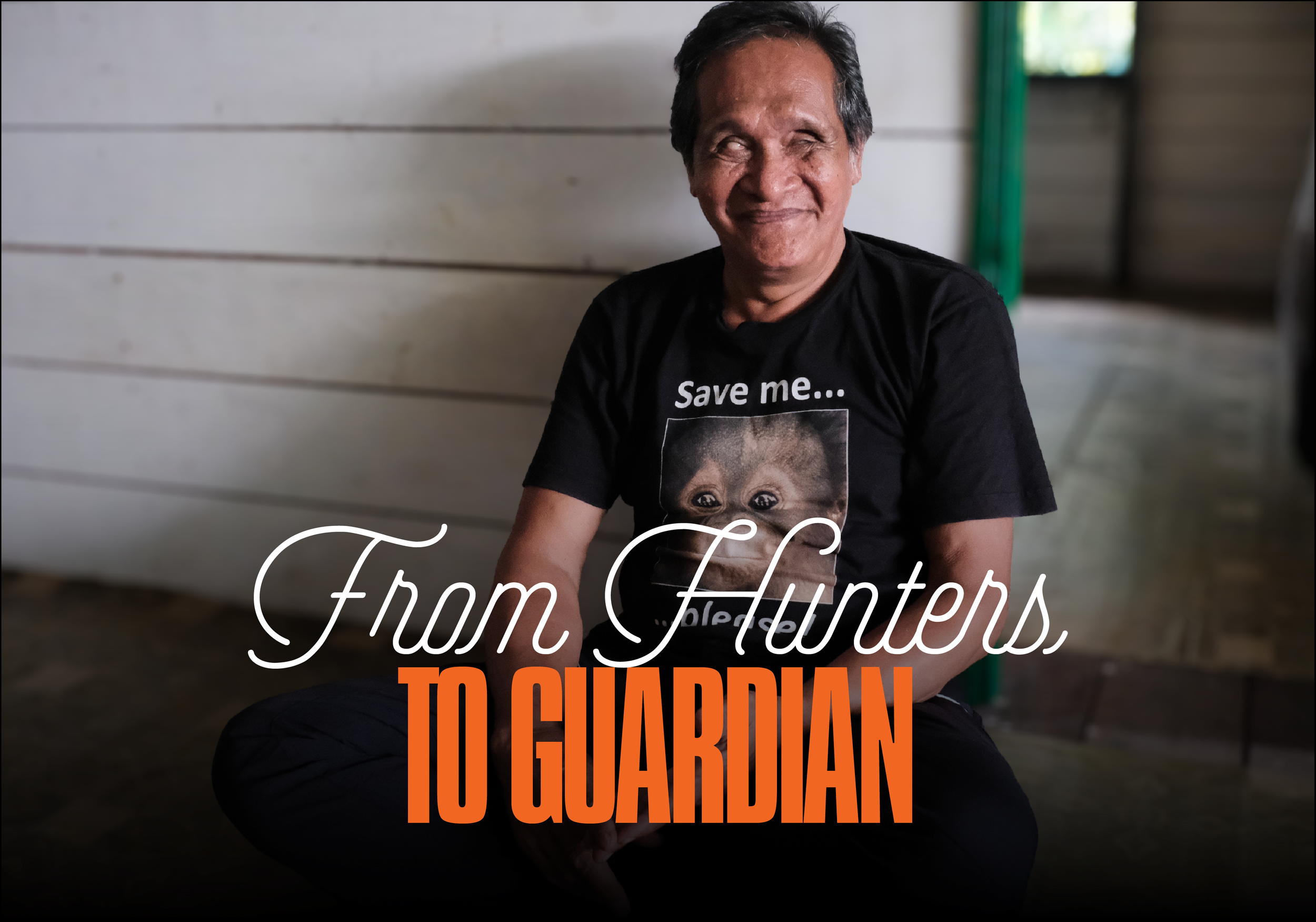“When I was a child, we Dayak people hunted orangutans to eat. Our lives depended on nature and we didn't see orangutans as particularly important creatures.”
Pak Laju, Former Ranger
People were afraid of the very old orangutans, which the elders would call "Ladangan", or "Kandar". I remember hearing an old story about people from the village going hunting, and while they were out in the forest they saw unusual rustling movements in the trees. They watched for a while, and then suddenly a giant, hairless Ladangan emerged from the bushes. They froze, none dared approach it. It was terrifying enough for them to end their hunt and go straight back to the village.
But after I started working for Professor Galdikas, I learned that orangutans are important, and that we should save their habitat. That awareness has passed on to the community as well. Most Dayak people now understand that orangutans are more valuable alive than dead, and we haven’t hunted them since 1975. Now when orangutans come to our village or plantations, we report it to the OFI so they can come and rescue them
Photo by OFI
There are a few orangutans I got very close with over the years working as a ranger. Before I moved to Pondok Tanggui, I worked in the Orangutan Care Center, where one of my jobs was to take care of young orangutans. One of them, Kongo, always listened to what I said, like one time he hit another young orangutan with a stick and I asked him to stop, and he did. I helped to raise him for more than 10 years. Now he’s an adult with fully grown cheek pads, but I know he still remembers me.
I’ve learned that if you treat them well, orangutans will remember you. Likewise, if you treat them badly, they will also remember you.
Atlas and I have known each other for a long time too, since he was very young. He knows I’m blind, so he’ll make little, quick physical touches to let me know when he wants food. There’s also a female named Rica, who used to bring a big bowl to the ranger's hut asking for milk.
If orangutans could talk, I think they’d ask me to treat them well, to give them what they want, to save them and their habitat. If I could talk to orangutans, I would tell them “don’t worry, we are here to save you and your home, we want you to be free.” I hope more people will become aware of the importance of conservation, and that we need orangutans to survive. With that, future generations will have a chance to know that such an amazing creature exists.
More Stories






